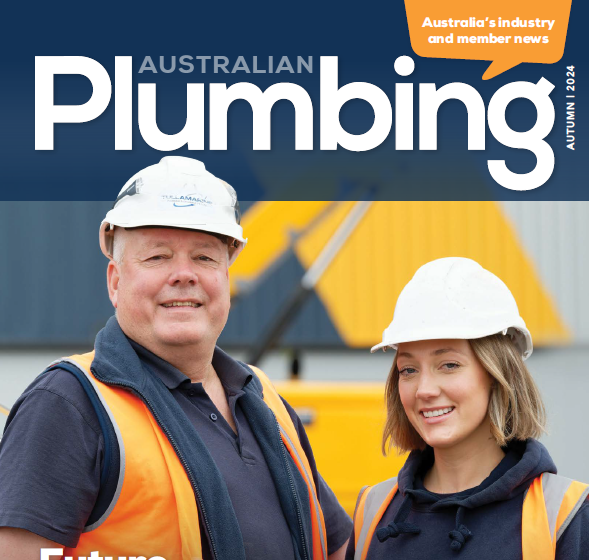
Welcome to the Winter edition of Australian Plumbing
The topic of energy continues to dominate our headlines. From supply, to cost, to security, to the green transition, it can be incredibly difficult to navigate the barrage of data, political...
Late last year, the Victorian Government announced that, as of January 1, planning permits for new homes and residential subdivisions will no longer be approved unless the property is fully electrified and does not have an active gas connection. The announcement was made without consultation with the industry, was short on detail and sent shockwaves across the pumbing sector.
Master Plumbers has expressed its concerns widely and we slammed both the decision and the way it was announced.
In the wake of this announcement, the Government also revealed it is now considering forcing households to rip out existing gas appliances as part of a Regulatory Impact Statement to be released later this year. We have already seen electricity supplies cut off due to severe weather events and predictions of more blackouts loom. These incidents don’t mean that we shouldn’t be moving towards carbon-neutral energy futures, but they do highlight the risk of putting all our eggs in one basket.
Over the coming year, Master Plumbers will be actively engaged with key decision makers to try and temper the transition in a sustainable and practical way for our industry and our communities.
For the past few years, the State Government has been investigating options for introducing a mandatory Continuing Professional Development (CPD) program for building and plumbing practitioners in Victoria. Master Plumbers has been actively engaged in the consultation process to date and we are pleased to note that the Government has now released a Regulatory Impact Statement RIS detailing the proposed way forward.
Master Plumbers believes that mandatory CPD would be a valuable addition to the existing framework for the regulation of plumbing in Victoria. Ongoing practitioner competency verification through CPD, is a particularly important consumer protection/compliance measure in regulatory settings such as Victoria’s which relies so heavily on self-certification.
Master Plumbers already operates a leading CPD program for the plumbing industry in Victoria, with almost 4,000 participants. Such schemes deliver benefits to many practitioners, and by extension consumers and the community. However, voluntary programs are unlikely to deliver the sorts of industry wide, compliance, consumer protection, or professional development outcomes which the industry requires. They tend to attract those are already keeping on top of industry developments rather than those who are most likely to need upskilling.
In an industry as dynamic as plumbing - where new innovations, technologies, systems, techniques, and materials are being developed, refined, combined and incorporated into the built environment every day - ongoing, post trade qualification training is not a “nice to have”, but is vital and necessary to ensure currency.
The key to a successful mandatory scheme is to design one which is relevant to all practitioners, has the right mix of technical and industry and professional development units and is designed to gain and retain practitioner buy-in and not become compliance driven.
A regulated CPD scheme would place requirements on all license (or registration) holders. The scheme must therefore be flexible enough to accommodate the variability in work types, skills classes, skill breadth and level, within and across the various license classes of plumbing and fire protection. While individuals may have a license in common, it would be wrong to view all practitioners within those license or registration categories as homogenous groups.
We are currently preparing a submission to the RIS built on the insights and invaluable experience of our own CPD program. We believe it would be a waste of limited resources for government to build a program from scratch when existing programs such as ours have already successfully established governance structures, active participant bases and momentum.
We look forward to playing an integral role, not only in shaping a future mandatory scheme in Victoria but in the delivery of CPD programs for the industry.
Norm Anderson
President, Master Plumbers and Mechanical Services
Association of Australia

You can only request
5 callbacks per hour
If your situation is life-threatening
please call triple-zero (000)
(Open-hours are shown on the listing)